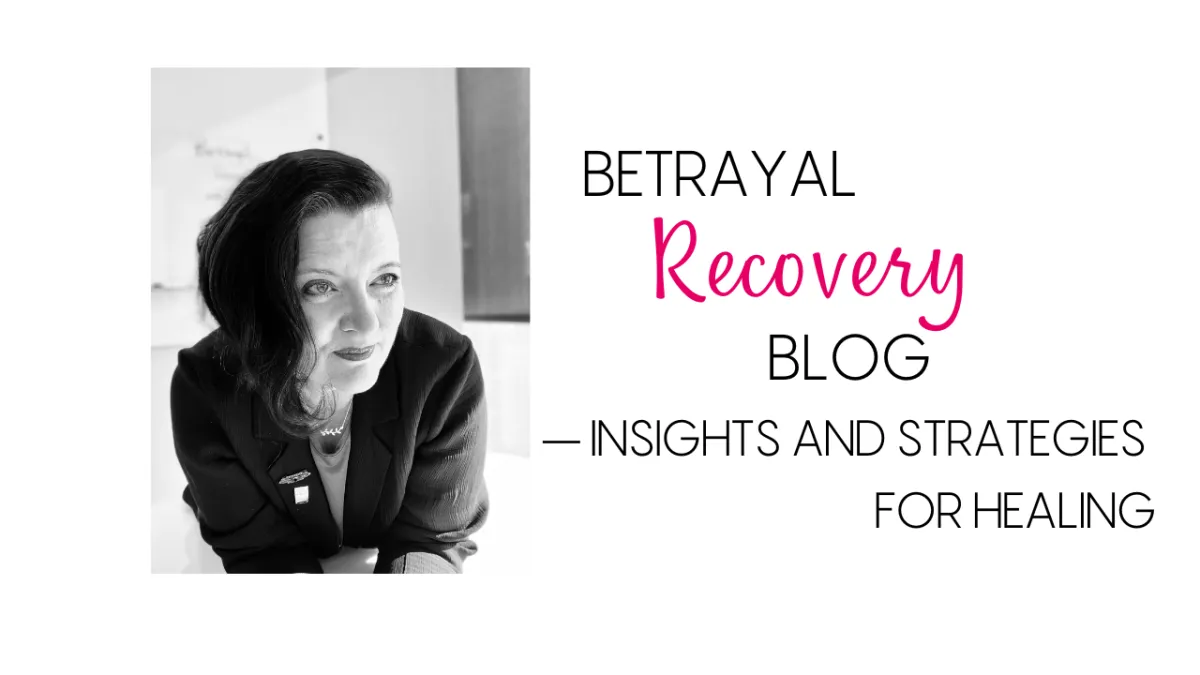
Expert Insights on Betrayal Recovery and Healing:
Blogs by Vanessa Cardenas
In-depth Articles on Healing, Communication, and Personal Growth.

Uncovering the Reasons Behind a Wife's Betrayal: Expert Insights
By Vanessa Cardenas, Betrayal Recovery Specialist
Serving Westchester, NYC, and the Surrounding Region in person, worldwide via Zoom
Let’s get straight to it: What drives betrayal in a relationship? Specifically, what causes a woman to betray her spouse?
Through my work as a Betrayal Recovery Specialist, I’ve come to understand that infidelity isn’t as simple as one might think. While the reasons vary, there are common threads I see time and again. Below, I explore five frequent reasons women cite when discussing their decisions to cheat—and why understanding these can play a critical role in healing after betrayal.
1. Wanting to Leave a Relationship
Some women use betrayal as a way to exit a relationship. Instead of directly confronting their desire to leave, they may engage in infidelity, hoping their partner will end the relationship for them. In other cases, they might seek out another relationship first, unwilling to leave until they feel they have a secure safety net.
This approach stems from fear—fear of confrontation, fear of being alone, or fear of financial or emotional instability. Understanding this fear can help betrayed partners better process the emotional pain of being left in such a way.
2. Low Self-Esteem and Unresolved Trauma
For some women, cheating is less about the partner or the relationship and more about themselves. Low self-esteem, depression, or unresolved childhood trauma can create a void they try to fill with external validation. When someone new provides attention or affection, it can make them feel desirable, wanted, or valued, albeit temporarily.
This behavior is often rooted in deeper emotional wounds. As a coach working with clients across Westchester, the Hudson Valley, and NYC, I’ve seen how addressing these underlying issues can lead to meaningful breakthroughs—not just for the individual, but for the healing process of the relationship.
3. Loneliness and Neglect
Relationships require nurture and care, and when those are missing, a woman may begin to feel more like a babysitter, maid, or financial provider than a partner. This emotional neglect can drive her toward an affair, seeking connection, intimacy, and understanding elsewhere.
This reason is particularly painful for betrayed spouses because it often stems from a breakdown in communication and mutual appreciation. However, it’s also an opportunity to reflect on how both partners can work together to rebuild emotional intimacy.
4. Lack of Female Social Support
A strong network of female friendships is a crucial part of healthy womanhood. Unfortunately, some women undervalue this support or don’t seek it out—often because of past experiences with maternal neglect or strained female relationships. In its absence, they may overvalue the attention of men, making them more susceptible to infidelity.
Building a community of supportive, like-minded women can provide the emotional grounding many women need to resist seeking solace outside of their committed relationships.
5. Unrealistic Expectations
Some women enter relationships expecting their partner to fulfill every emotional and practical need. When these unspoken expectations aren’t met, they feel let down and may look elsewhere for someone who appears to offer what they’re missing.
Infidelity becomes a misguided attempt to address unmet needs rather than communicating openly about them. This underscores the importance of vulnerability and honest conversations within a partnership.
Final Thoughts: A Choice That Hurts Both Parties
As devastating as betrayal is, it’s important to remember this: Infidelity is a choice. Regardless of the reasons behind it, betrayal happens when someone chooses to act outside of their relationship rather than turning inward or toward their partner to share their struggles.
If you’re navigating the aftermath of betrayal—whether in Westchester County, the Hudson Valley, NYC, or anywhere in the world—it’s natural to feel overwhelmed by the “why.” The blame, shame, and self-doubt that follow betrayal can cloud your path to healing. However, the healing process doesn’t require you to have all the answers. What’s essential is starting where you are and taking one step at a time.
Rebuild Your Life After Betrayal
If you’re ready to explore how coaching can help you navigate these challenges, I’m here to guide you. Together, we’ll work toward reclaiming your sense of self, rebuilding trust, and finding clarity amidst the chaos.
To learn more about my coaching services in Westchester, NYC, and beyond, or to schedule a Zoom session, reach out at www.UnderstandingEar.com
Healing from betrayal is hard—but you don’t have to do it alone.
Subscribe for More Insights:
If you found this article insightful and would like to receive similar content delivered directly to your email, please subscribe to our newsletter. Stay updated with the latest information, tips, and strategies for managing life's transitions. Don't miss out on valuable insights that can empower you to make the best decisions for your future. Join our community today, and let's navigate these challenges together. Subscribe now!



© Copyright 2017-2025. Understanding Ear LLC. All rights reserved.

